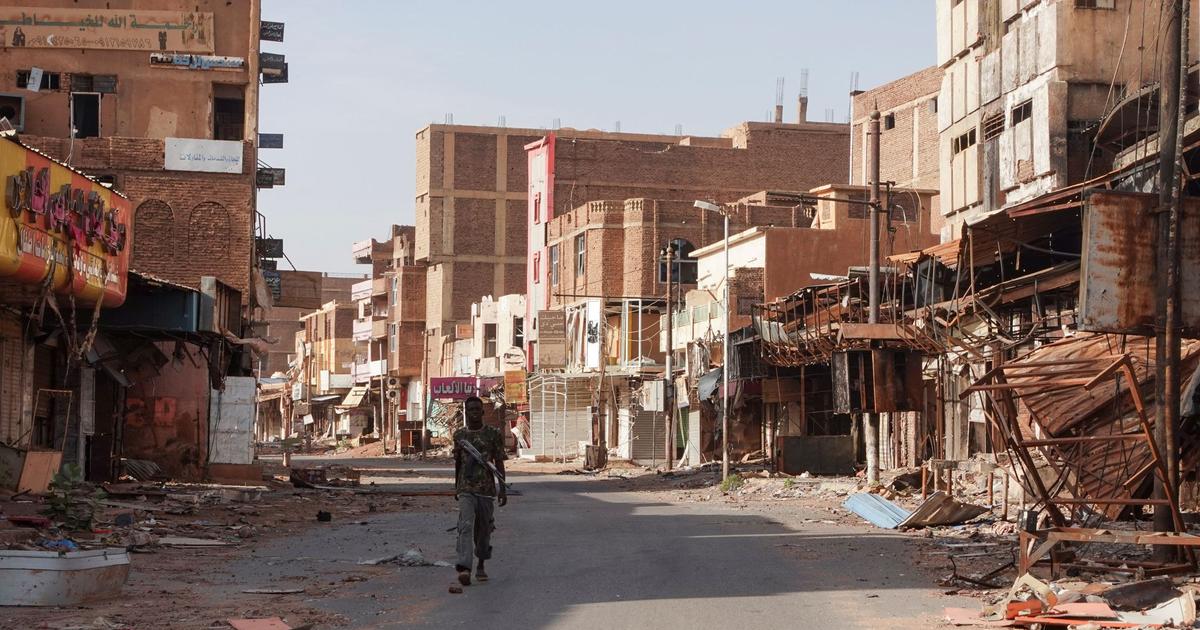Rodd Gerstenhaber, head of mission for Doctors Without Borders for Mexico, Guatemala and Honduras.Julie Remy (MSF)
The head of mission of Doctors Without Borders (MSF) for Mexico, Guatemala and Honduras, Rodd Gerstenhaber, criticizes the decision of the Supreme Court of the United States to maintain the so-called Title 42, the controversial norm imposed by Donald Trump during the covid-19 pandemic and that allows
hot
ejection
of migrants back to Mexico under the excuse of health policy to avoid contagion.
Gerstenhaber describes the decision as "disappointing" and affirms that it complicates the situation of tens of thousands of migrants who are waiting in precarious conditions to cross into the United States, especially these days when they have suffered the harshness of the polar wave that is hitting North America.
“Title 42 no longer has a foundation as public health policy,” Gerstenhaber asserts.
“It is disappointing that it continues to be maintained, because it is a migration control tool that, moreover, has not prevented it, because in 2022 more people than ever have migrated.
So, it's not effective either,” she adds.
The United States Supreme Court, with a conservative majority, decided on Tuesday to reject the rule, despite repeated efforts by President Joe Biden's Administration to repeal it, leaving thousands of migrants now in limbo, stuck at a border in which they spend the days in inhumane conditions: without drinking water, bathrooms, little food and with precarious protection against low temperatures.
With the covid more or less controlled and a large part of the population vaccinated, the measure now seems to have no foundation and that is why the head of MSF criticizes that it be maintained.
“There must be another way of managing migration policy, a more humane system that offers more security and dignity for migrants,” he explains.
Gerstenhaber says that this type of regulation —just like that of Stay in Mexico— "makes the life of migrants more difficult, that they have to be in unacceptable conditions, live without the necessary dignity that human beings should have."
MSF doctors and health personnel are very familiar with the conditions in which migrants passing through Mexican territory are waiting in the hope of crossing the northern border.
This agency has assistance points along the route, in Panama, Honduras, Guatemala and on the northern and southern borders of Mexico.
At these points they provide health care (colds, injuries, traumas from accidents) and also psychological care, because many migrants suffer from stress, depression or anxiety.
MSF also donates hygiene materials, blankets, medicine, food and guarantees access to clean water.
Despite this effort and that of the shelters of religious organizations, there are thousands of migrants who do not have basic conditions during their long wait.
Gerstenhaber explained that in the case of Reynosa, in northern Mexico, up to 10,000 migrants gather and that only about 4,000 can access shelters.
“The rest of the people remain on the streets.
Those who can afford it use hostels,” she says.
“People on the streets have been very creative in keeping warm, because most of them sleep in tents.
They use any resource to stay warm,” she explained.
They are, she says, Venezuelan, Central American, Haitian and more recently Ecuadorian migrants.
“It is the population that has increased the most on its way through the route in these two months.
Before there were very few.
Something happens in Ecuador,
Many of these migrants, he adds, were hoping to cross the border, but those hopes have been dashed because Title 42 is upheld. In previous days, he explains, up to 350 people could cross through Reynosa if they showed that they had someone that he can help them in the United States or pay an amount of money, which allowed them to enter and request asylum.
Now, that number has been reduced to 100 people a day.
"Before, people waited two weeks, now it can be much longer," warns Gerstenhaber, who is concerned about the difficult conditions in the area.
“They have been very cold.
The constant situation is difficult, because they need food, water, hygiene, ”she stresses.
subscribe here
to the EL PAÍS México
newsletter
and receive all the key information on current affairs in this country
Subscribe to continue reading
Read without limits
Keep reading
I'm already a subscriber








/cloudfront-eu-central-1.images.arcpublishing.com/prisa/V22MUF36WRCMFMYVPT2JTWATUU.jpg)